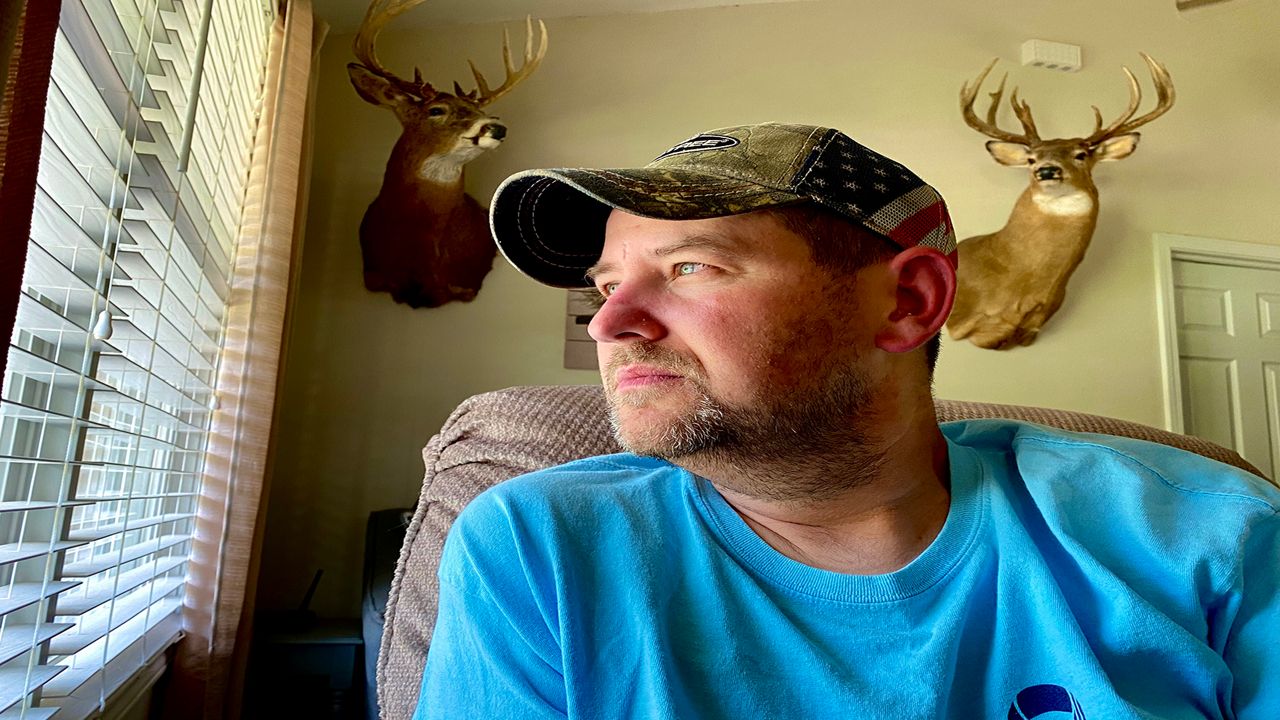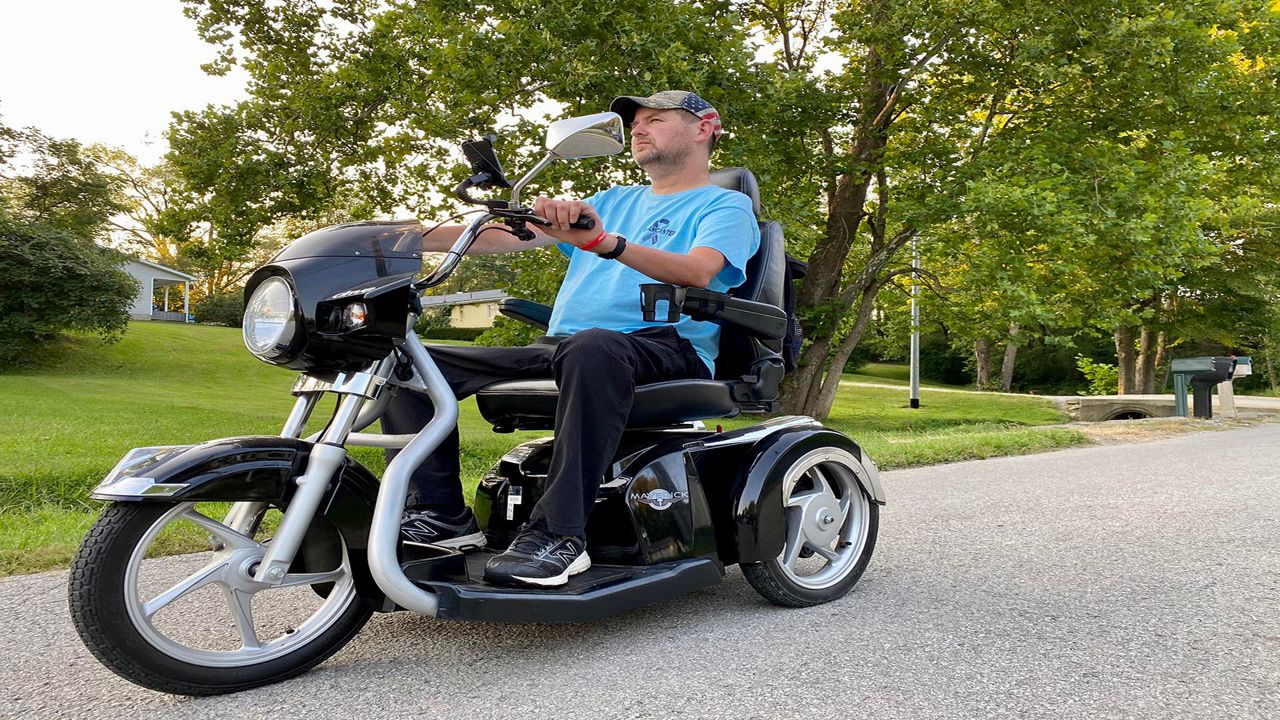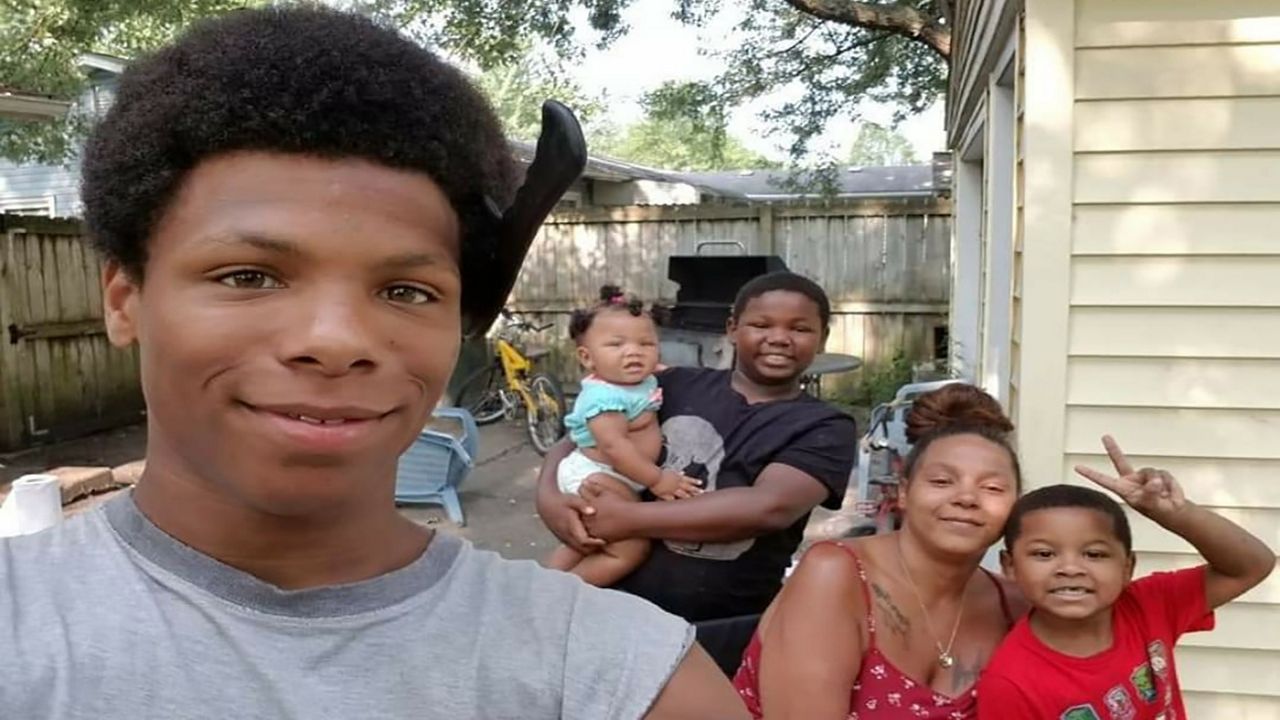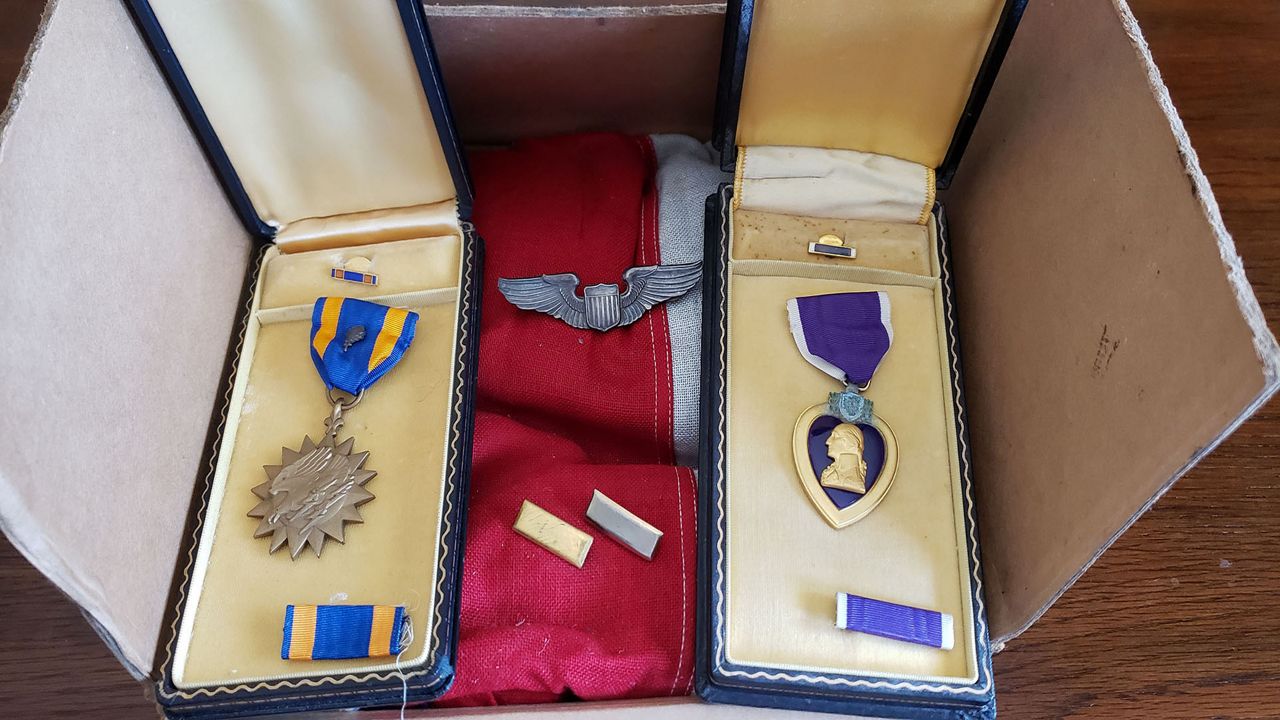GEORGETOWN, Ohio — It is a matter of life or death.
And two men are at the forefront of that battle for amyotrophic lateral sclerosis (ALS) patients.
Joshua Cohen and Justin Klee, co-founders and co-CEOs of Amylyx, said time is of the essence for those fighting ALS and they must move rapidly on their path forward with the drug they co-created, CENTUR AMX0035 — a treatment, they say, could potentially save lives based on their most recently released trial study data.
“(For) people with ALS, time goes so fast and they don't have time to wait,” Klee said.
However, their newest data indicates a 44% lower risk of death from ALS – making it the first drug study to tout an increase in overall function sustainability as well as a heightened survival rate, Cohen said.
"It's something we're really proud of and really excited about. I think our first data shared that patients kept their function longer which is absolutely critical and ALS robs people of, really, every ability – and so we were so excited about that. But I think the question still remained, 'Do you see long-term benefit?' Klee said. “Ultimately, we know ALS is universally fatal and unfortunately very quickly so – and so this data says, not only do people keep their function longer but they survive longer, and quite significantly so.”
You might know it as Lou Gehrig's Disease or remember it from its social media hype during the Ice Bucket Challenge in 2014, but for thousands, it has been considered a death sentence. It is ALS, and 20,000 to 30,000 people are living with the highly debilitative and progressive nervous system disease at any given time in the U.S.
There are approximately 5,000 new cases every year, said Dr. Sabrina Paganoni, principal investigator of the CENTAUR trial, investigator at the Sean M. Healey & AMG Center for ALS at Mass General and assistant professor at Harvard Medical School and Spaulding Rehabilitation Hospital.
"People with ALS have progressive muscle weakness, which means they progressively lose the ability to do many activities daily like walking, talking, swallow food,” said Paganoni, who has dedicated her career to studying the motor neuron disease, which affects nerve cells within the brain and spinal cord.
"The disease is rapidly progressing and fatal,” she continued. "It will involve other body regions, so the weakness will get more severe. ALS, oftentimes, strikes people in the prime of their life, so you have perfectly healthy individuals who might be in their 40s or 50s or 60s, who are actively working and living their life when the disease starts."
ALS is ultimately fatal because it affects the diaphragm’s muscles, leaving patients unable to breathe on their own, Paganoni said.
Greg Canter, of Georgetown, Ohio, knows the battle that comes with ALS. He was diagnosed with ALS in October 2018.
Those first few months left him stunned and in disbelief – stemming from three medical opinions all concluding with the same unconscionable diagnosis.
"That's how ALS hits you. Until it hits close to home, nobody really knows nothing about it. That's why it's so in-the-dark deadly,” the 41 year old said.
Staring out his front picture window, Canter watches the world move on about their daily lives, while a new obstacle presents itself each day for him.
“You can't do what you used to do, and a lot times, what you could do yesterday. With ALS, that's how everything is described: 'Today is going to be better than tomorrow.' Tomorrow is always worse than today. It's a downhill roller coaster. You don't get better from ALS. It's not like other diseases, where you have good days and bad days. Every day is worse — every tomorrow is worse than today,” he said resting his hands on the arms of his tan recliner.
He wears a medical alert bracelet on his wrist, layered with a red rubber bracelet with bold white letters: #ALSStrong, leading to his fingers and hands which curl under – just one of the many ailments plaguing him.
"I wouldn't give ALS to my absolute worst enemy in life because I know how bad it is, and I wouldn't give that to anybody,” Canter said.
These days, he cannot walk on his own, he said, using an electronic wheelchair or walker to get from room to room. As his muscles continue to weaken, he said, he grapples with everyday tasks like standing or picking up household items, like his 23 daily pills.
"Your nerves die in your body and when your nerves die, the muscles that react to your nerves, when the muscles aren't getting used, they eventually dissipate; they eventually waste to where you're skin and bones,” Canter explained.
“I’ve got no pain. No pain at all on my body. I don't hurt. It's just that my legs get so heavy; it's just the weakness and the muscle dying. That's the problem with it. It's a silent killer,” he said.
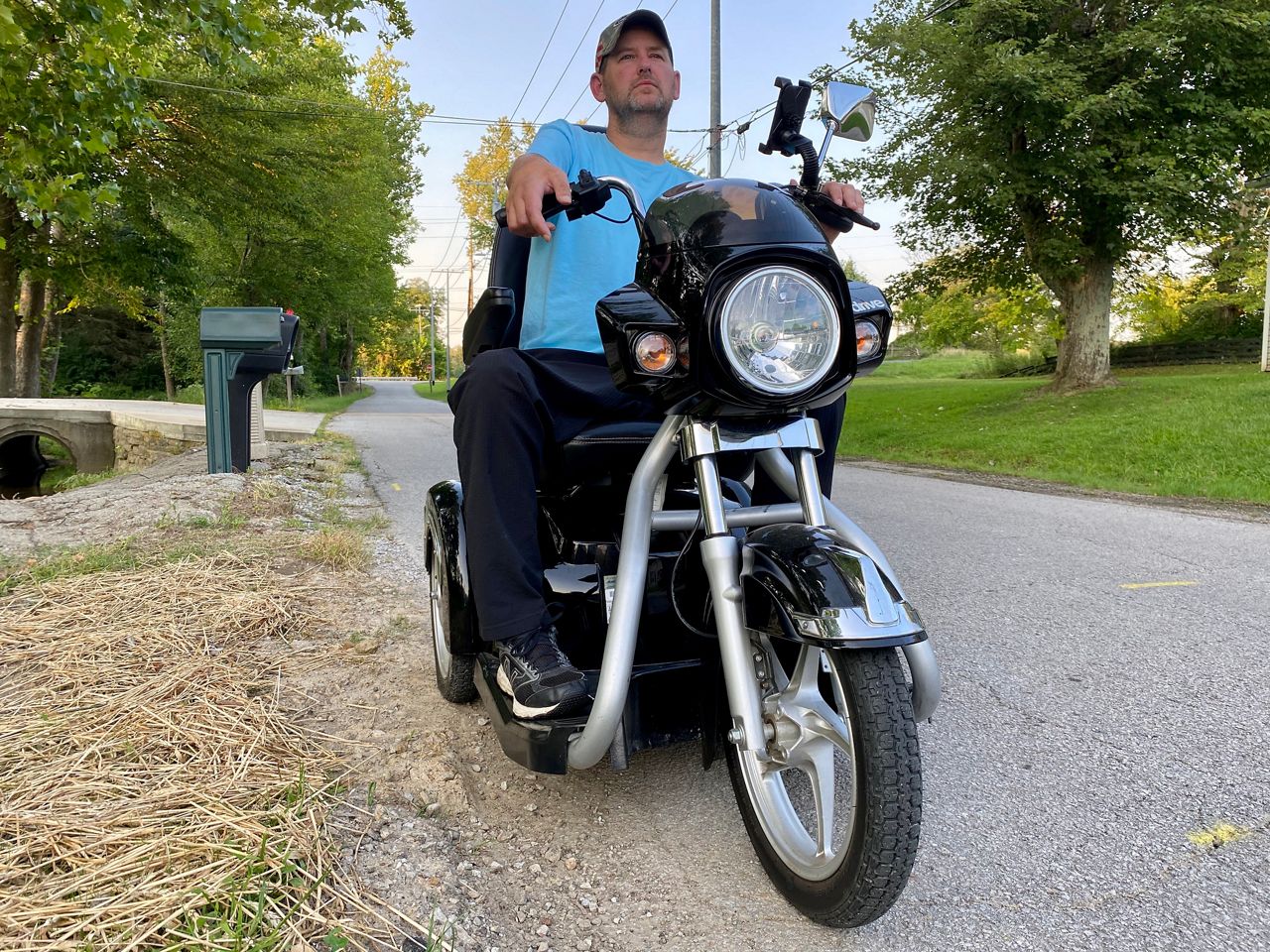
But after being diagnosed and given 30 months to live, he vowed to do whatever he needed to, to fight ALS.
"All of these people dying today should be alive tomorrow in today's world. ALS should not be a terminal illness in 2020,” Canter said with conviction.
"We're all dying. In a way, we're all terminal. In reality, nobody knows what your expiration date is; everybody's got one,” Canter said. “From the beginning, it's a life sentence when they give it to you. You know you're not going to have much of a future left.”
So, he decided to participate in the 24-week blind trial study for CENTUR AMX0035 in 2019, along with 136 other ALS patients across the country.
Following the initial clinical trial, Canter opted to join the Open Label Extension trial for the drug, giving him the opportunity to knowingly take CENTAUR AMX0035 for up to 30 months, for researchers continued to study the long-term impact of the drug.
"Us, who's suffering from ALS, we're not looking for a cure right now,” Canter said. “Before you have a cure, you have to have treatments. I'm lucky, because I was in the trial, but there's thousands suffering with nothing.”
Since Canter started taking the drug regularly outside of his initial trial phase, he said that he has already noticed the progression of his ALS symptoms change.
"I started noticing my breathing pattern... it drastically slowed down my progression in my breathing pattern — in my lungs, my diaphragm," he revealed.
Like Canter, 90 out of the original participants opted into the Open Label Extension, giving them all something that they never thought was possible: hope.
"One thing you have to have in life is hope. And this medicine gives me my hope right now,” Canter said. “There's hope right around the corner."
He will be guaranteed the medication from the trial until May 2022.
"I want years,” he said. "I think if it wasn't for this drug, I would be in the ground today. I think this drug is keeping me above ground as we speak.”
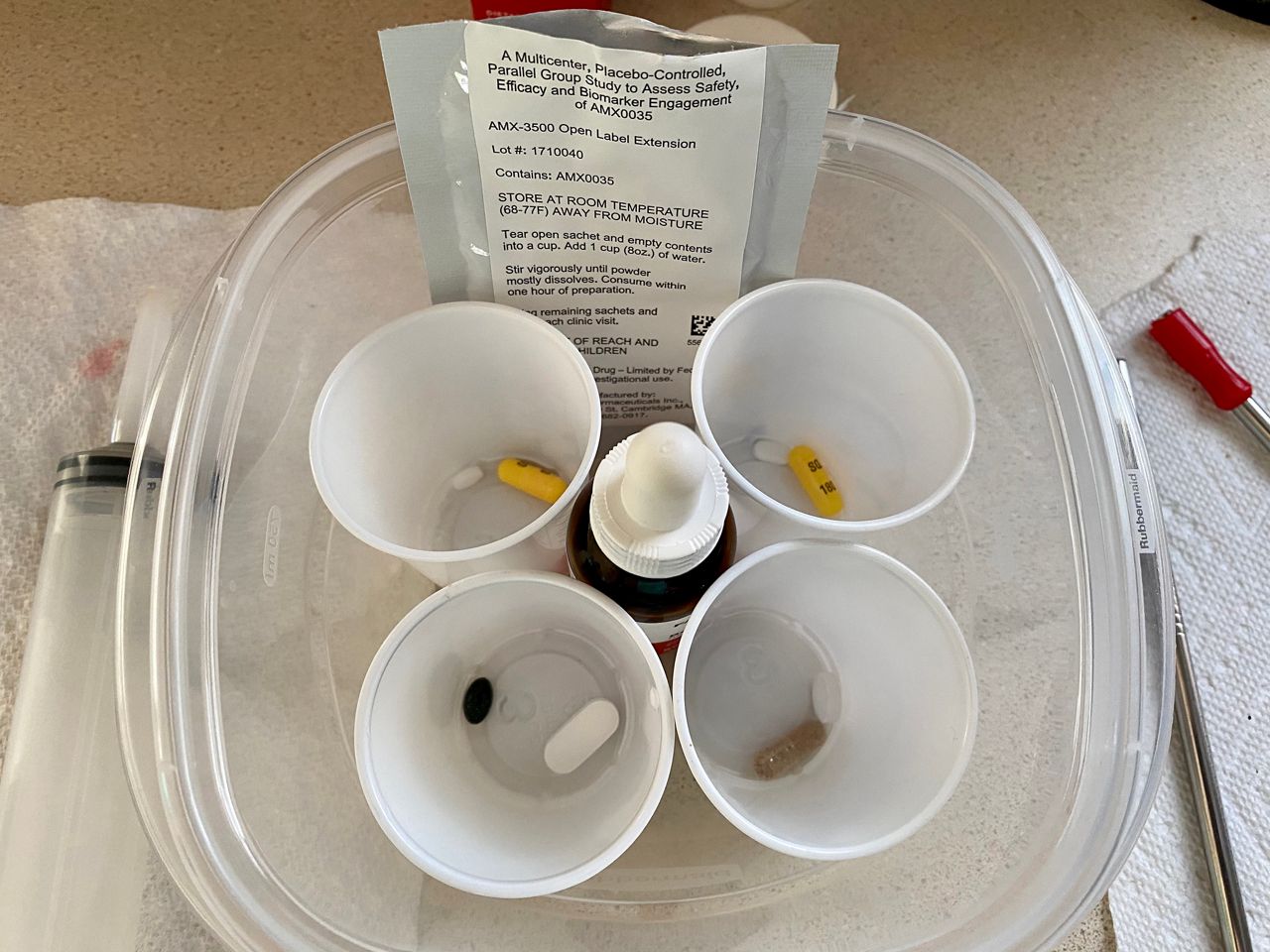
The Open Label Extension study that Canter is currently participating in is where the most recent promising data has emerged from – coupling that with the trial study’s original findings, a breakthrough in ALS treatment.
During the initial trial study, researchers, like Paganoni, found that ALS patients saw an improvement in keeping more function.
"As a researcher, I find the data compelling and in addition, it really changed the tone of my conversations with patients. We spend our days talking to people and families about ALS and what it looks like, and now we can talk to patients with more hope. It's hopeful day; we're making a dent. We're just at the beginning of a new era in the discovery of new treatments and so we need to continue in this line of work and continue to do more research, more clinical trials, until we find cures for everyone who has ALS,” said Paganoni, who has continued to follow and analyze the trial data as well as the Open Label Extension.
With the Open Label Extension results, Amylyx Pharmaceuticals, Inc., recently released new data indicated long-term, overall survival for those living with ALS.
Moreover, that early treatment with CENTAUR AMX0035 reduced the risk of death by more than 40% — making it the first and only ALS treatment to demonstrate both survival and functional benefits in ALS.
"We think and we hope it'll mean a lot to people that they know, not only will they be keeping their function longer but they'll be living longer too. Which I think in a disease like this, getting to every additional milestone just matters so much. So, we're just so excited about these results and what they mean to people,” Klee said.
Cohen, co-creator of the drug, said this is a landmark in ALS treatment.
“These results provide evidence to support the rapid advancement of AMX0035. We will continue to work collaboratively and expeditiously with global regulatory agencies to bring this potential treatment to people living with ALS in accordance with the applicable regulatory approval processes,” Cohen said.
CENTAUR AMX0035 is not currently available for prescription to patients outside of the extended trial because it is awaiting FDA approval.
But the data is promising, Paganoni said.
“We have many reasons to be encouraged today,” she said. “In this trial, we have seen promising functional and survival benefits. To add, these results were seen on top of baseline use of approved ALS therapies. I am so excited about the potential of this drug for the people living with ALS.”
“This is the first step,” she said, hoping that each new set of data results moves the needle one step closer to FDA approval.
But where that decision stands, is unknown.
"The question remains though, is this enough to support an approval, both in the U.S. with FDA as well as outside of the U.S., with Health Canada, with EMA, etc. So, we don't know yet. We are having those discussions with different regulatory agencies,” Klee said. "What we definitely know is we think this is the strongest data so far in ALS. This is the first time that there's been both a functional and survival benefit in a study — which are the two things that you'd really want to see."
"We need to think about this in the lens of, ‘How do we help people today? How do we help people in the future, and how do we figure that out as fast as possible?’” he continued. "It's really important that we and the regulatory bodies figure this out quickly so that we can get this drug to people however the regulators see fit."
"This is about as serious a disease as there possibly could be. Through that, we're hoping we can really find a really rapid path forward. That's definitely our goal every day and we're hoping that we can find and work together on a solution that works for all parties,” Cohen said.
And that, is what patients like Canter, are banking on.
"I'm fighting for my life," Canter said.
SUBHEAD: ‘What Comes Around, Goes Around’
After our first story about the initial study data results and Canter published, his community rallied, and his friends and family started to organize a fundraiser for him to help with his mounting medical bills associated with ALS.
"Everybody says, 'What comes around goes around' and I believe that. I believe that if you do good, good will come back to you,” he said.
That is because, he said when was healthier, he volunteered for the food bank and Habitat for Humanity, because he has always firmly believed that one person can make a difference. Through his volunteering, he said, he helped build a home for a homeless, single mother of four in Cincinnati.
"I was a privileged one to help administer building her a home. It's not much; I was only one of 30 people that helped bring the house together. But if you take each person away, one person at a time then you have nothing. That's how you rally to help somebody, bring everybody together — and it is only one person at a time. And one person does make a difference," Canter surmised.
Similarly, to what he did for that mother, is what he hopes the upcoming fundraiser will do for him.
"These benefits are for people in need. I hate being the person, but I'm that person now. It's hard,” he admitted.
"I've never been the person to raise my hand and ask for money or anything from anybody. It's just how I've been raised and that's just how I am. At some point, I realized I had to set my pride down and allow people to help,” he conceded.
The money raised will go towards his medical costs, including medicine, household items as needed, like a hospital bed, a ramp for the front of his home, renovating his bathroom to include a walk-in shower, as well as machines that he will eventually need for his ongoing care due to complications with ALS — like a tracheotomy and a full-time respirator to help him breathe, as his conditions worsen.
"I'm not looking forward to it but I understand what comes with ALS," he resolved.
The lifelong resident of Clermont County is forever grateful for those supporting him and fighting right alongside him.
"There's a lot of things in life that I could go back and change if I had the power. And the one thing I would not change is my corner people. I say that with a heavy heart. I have best support group of people that surround me that I could ask for,” Canter said.
The outpouring of support is more important than ever for him right now, he said.
"There's going to come a time to where I'm going to need several hours of home healthcare nursing – stuff that my parents can't administer because they're not nurses, and it's right around the corner. That comes with every ALS patient."
But ultimately, he fears, he will be forced into a nursing home if he cannot afford live-in assistance, and as a result loses the independence that he has clung unto for the past two years since his ALS diagnosis.
"There goes my independence; there goes everything," he said. "They'll be calling hospice in to take care of me. In my mental fight, that's the last stage of life is when they call hospice in. I'm not ready for that. I'm not ready to think that I'm ready to die. I still feel like I have fight left in me."
That is why his cousins spearheaded the fundraiser and created a GoFundMe page, in an effort to assist him in keeping his independence and in his home for as long as possible.
"We just think the world of Greg and what he's fighting for and what the whole community is fighting for,” Klee said, who talks to Canter personally on a regular basis for his updates with the drug and its effects.
"That is just so heartwarming,” the drug’s co-founder said. “In often such a polarizing time around the election right now, to see community banding together to help someone, it's so wonderful."
The fundraiser and auction, "Out Bid ALS With Greg Canter” to benefit Canter and his medical expenses, will be held on Nov. 15 in his hometown at the American Legion, located at 3393 Legion Lane in Bethel, Ohio. It is slated to feature live entertainment, an auction, food and drinks.
To date, the GoFundMe fundraiser online has raised over $500 of its goal of $5,000.
The ALS Association has a petition online for FDA approval for the drug, AMX0035. To learn more about ALS, donate to ongoing research and to sign the petition, visit https://www.als.org.
Editor’s Note 11/24/20: Greg Canter and Jessica Noll attended Bethel Tate High School together.





